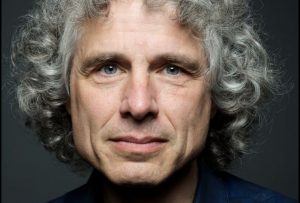David Runciman in the Boston Review:
 Whether you are an optimist or a pessimist is not just a question of personal temperament. It is also, increasingly, a question of politics. The divide between the optimists and the pessimists is as acute as any in contemporary politics and like many others—the generational divide between old and young, the educational divide between people who did and didn’t go to college—it cuts across left and right. There are left pessimists and right pessimists; left optimists and right optimists. What there isn’t is much common ground between them. Competing views about whether the world is getting better or worse has become another dialogue of the deaf.
Whether you are an optimist or a pessimist is not just a question of personal temperament. It is also, increasingly, a question of politics. The divide between the optimists and the pessimists is as acute as any in contemporary politics and like many others—the generational divide between old and young, the educational divide between people who did and didn’t go to college—it cuts across left and right. There are left pessimists and right pessimists; left optimists and right optimists. What there isn’t is much common ground between them. Competing views about whether the world is getting better or worse has become another dialogue of the deaf.
Steven Pinker’s new book Enlightenment Now: The Case for Reason, Science, Humanism, and Progress—along with its critical reception—illustrates how dug in the two sides are. Pinker argues that most people have lost sight of the incredible benefits that liberal democratic values continue to deliver because too many of us have a bias in favour of bad news. He blames the things he doesn’t like—including Donald Trump’s presidency—on this innate and deeply misguided pessimism about the possibility of progress. “The most consistent predictor of Trump support,” he writes, “was pessimism.” He accuses these pessimists of fatalism, because they assume that any good news they hear is essentially fake news. They discount progress because of their deep faith in the inexorable pull of the worst that modern societies have to offer. He thinks that the pessimists have effectively given up on the capacity of human beings to make a better future.
More here.
